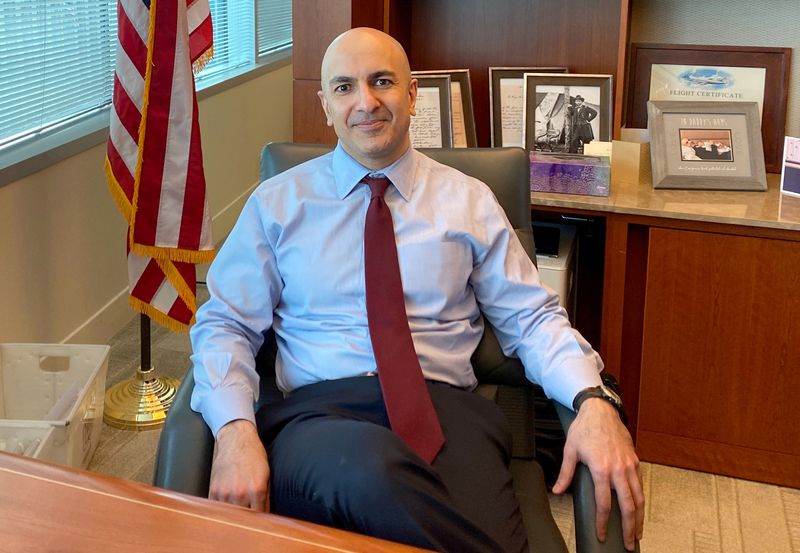By Michael S. Derby
NEW YORK (Reuters) -Federal Reserve Bank of Minneapolis President Neel Kashkari said on Wednesday that U.S. job market demand remains strong and underlying inflation pressures probably have not peaked yet.
“I’ve seen very little evidence in my region that the labor market is softening,” Kashkari said in a virtual appearance. “The No. 1 issue I hear from businesses small and large is that they’re struggling to find workers, how they’re having to pay more wages to keep their employees and to attract employees."
On the inflation front, Kashkari said the surge in overall prices may have hit its high point but underlying pressures are a different story.
For inflation stripped of food and energy costs, “I’ve not yet seen much evidence that that has peaked," he said.
Kashkari is one of the Fed's most steadfast supporters of raising short-term rates to help lower very high levels of inflation. The Fed has boosted its overnight target rate range from near zero levels last March to its current level of between 3% and 3.25%, with recent increases coming in historically large 0.75 percentage point increments.
The rate-setting Federal Open Market Committee next meets at the start of November and is on track for another 0.75 percentage point increase, with officials eyeing a target of around 4.6% next year. Kashkari has said it's possible the Fed will need to raise rates above that level to bring down inflation.
That said, he acknowledged an end to rate hikes could be looming into view over coming months.
"I'm looking for some evidence" that the factors that drive underlying inflation "have in fact stopped climbing. I haven't seen that evidence yet, so until those [underlying factors] stop climbing, I can't see how I would recommend pausing interest rate increases."

"My best guess" is that the factors driving inflation do start leveling out over the next few months which can set the Fed up to pause in rate rises "some time next year."
But Kashkari said it remains critical that the Fed bring down inflation, noting that on the policy front, "the risk of underdoing it is a more serious risk than the risk of overdoing. We have to get inflation back down to 2%. We're committed to doing so."